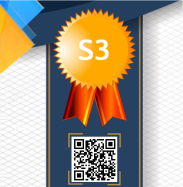PEMBELAJARAN MENULIS KARANGAN DESKRIPSI DENGAN MODEL KOOPERATIF TIPE STAD TERHADAP SISWA KELAS X MAN 3 ACEH UTARA
Abstract
The aim of the study was to determine the influence of the application of learning descriptive writing by using cooperative model of Student Teams Achievement Division (STAD) type. The research method used was experimental method, with a quasi-experimental design. This research was limited to the third year of class X students of MAN 3 in North Aceh District, while the sample of the study was the students of social class X2. The data analysis used in this study was t-test analysis by the Paired Samples T-Test model. As a result, the study showed that learning descriptive writing by using STAD type of cooperative model went well and provided better learning outcomes. It is proven by the average value of pre-test and post-test results. The results of pre-test test obtained an average value was 70.21, while the results of the post-test test obtained an average value was 87.79. Thus, there was a split about 17.58 between the results of pre-test and post-test. The Paired Sample t-test results showed significance of sig-0.00. This was less than a significant level of 0.05, meaning that H0 was rejected and Hi was accepted, and there was a positive influence on the application of learning descriptive writing by using STAD type of cooperative model.
Keywords
Full Text:
PDFReferences
BSNP, Permendiknas RI No. 22 Tahun 2006 tentang Standar Isi untuk Satuan Pendidikan Dasar dan Menengah, Jakarta: Badan Standar nasional Pendidikan (BSNP) Departemen Pendidikan Nasional, 2006.
Burhan Nurgiyantoro, dkk., Statistik Terapan untuk Penelitian Ilmu-Ilmu Sosil,. Yogyakarta: Gadjah Mada University Press, 2009.
, Penilaian Pembelajaran Bahasa, Yogyakarta: BPFE, 2013.
Hake dan R. Richard, ¬Analyzing Change/Gain Scores, Amerika: American Educational Research Methodology, 1999, hal. 48.
Kemal dan Isthifa, “Upaya Peningkatan Keterampilan Membuat Kalimat Melalui Pembelajaran Kooperatif Tipe STAD Pada Siswa Kelas V SD Negeri I Alafan Kabupaten Simeulue”, Jurnal Tunas Bangsa, Vol. 2, No.1, 2015, hal. 47-71.
Maharaja dan Rentika Sari, “Pengaruh Penggunaan Model Pembelajaran STAD terhadap Kemampuan Menulis Karangan Eksposisi Siswa Kelas X SMA Negeri 10 Medan Tahun Pembelajaran 2015/2016”, Skripsi Tidak diterbitkan, Medan: Unimed, 2016.
Muhammad Arif dan Ansari Saleh Ahmar, Penelitian Eksperimen: Merancang, Melaksanakan dan Melaporkan, Makasar: Andira Publisher, 2014.
Ni Made Supantini, I Dewa Gede Budi Utama, dan I Made Astika, “Peningkatan Keterampilan Menulis Karangan Deskripsi dengan Menggunakan Model Pembelajaran Kooperatif Tipe STAD Pada Siswa Kelas X SMA Negeri Satu Atap Tejakula Tahun Pelajaran 2016-2017, e-jurnal pendidikan bahasa dan sastra Indonesia, Undiksha, Vol.7, No.2. 2017, hal.1-12.
Nurchasanah dan Widodo, Keterampilan Menulis dan Pengajarannya, Malang: Fakultas Sastra Universitas Negeri Malang, 1993.
Ryvafie Damani, Misteri Elang Perak, Bandung: Syaamil, 2003.
Santoso, Mengatasi Berbagai Masalah Statistik dengan SPSS Versi 11.5, Jakarta: Gramedia, 2005.
Sigit Widiyarto, “Pengaruh Metode Student Teams Achievement Division (STAD) dan Pemahaman Struktur Kalimat terhadap Keterampilan Menulis Narasi”. Jurnal Lectura, Vol.8, No.1, 2017, hal.82-89.
Sugiyono, Metode Penelitian Kuantitatif, Kualitatif, dan R&D, Bandung: Alfabeta, 2009.
T. Anggoro, Metode Penelitian, Jakarta: Universitas Terbuka, 2008.
Titik Dwi Fajariani, “Peningkatan Keterampilan Menulis Narasi Melalui Model Cooperative Learning Tipe STAD Siswa Kelas IV SDN Ketawanggede 1 Malang”, Skripsi Tidak diterbitkan, Malang: UM, 2011.
Trianto, Model-Model Pembelajaran Inovatif Berorientasi Konstruktivistik, Jakarta: Prestasi Pustaka, 2007.
Yunita Dongoran dan Wisman Hadi, “Pengaruh Model Kooperatif Tipe STAD terhadap Kemampuan Membedakan Karangan Deduktif Dan Induktif pada Siswa Kelas XII SMA Negeri 3 Kisaran Tahun Pembelajaran 2013/2014”, Artikel Skripsi, Medan: Unimed, 2014.
DOI: http://dx.doi.org/10.22373/jid.v19i2.5034
Refbacks
- There are currently no refbacks.
except where otherwise noted.



